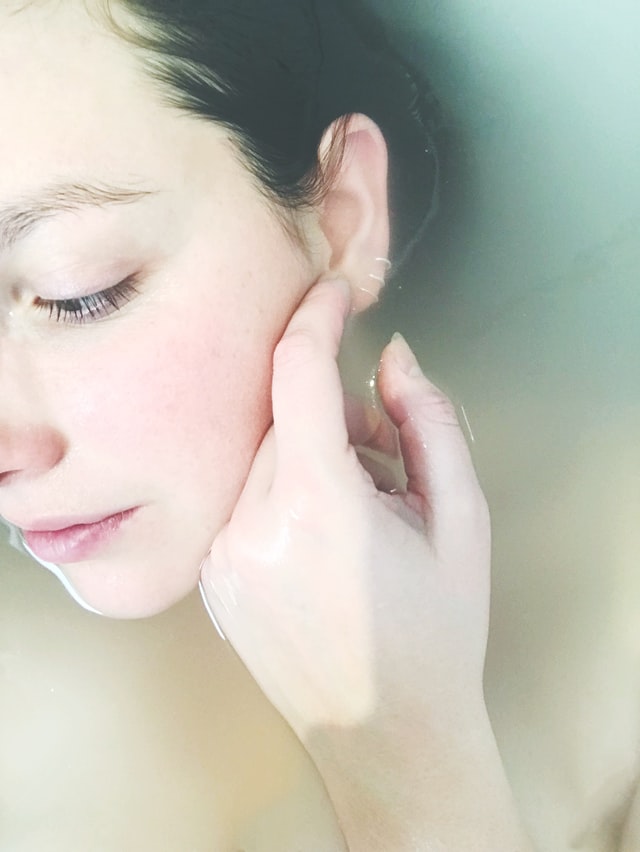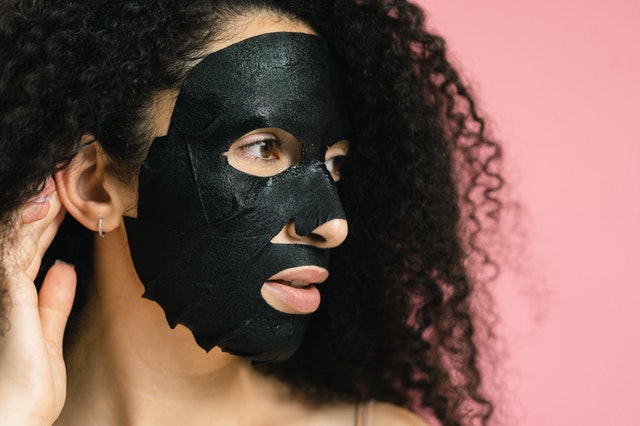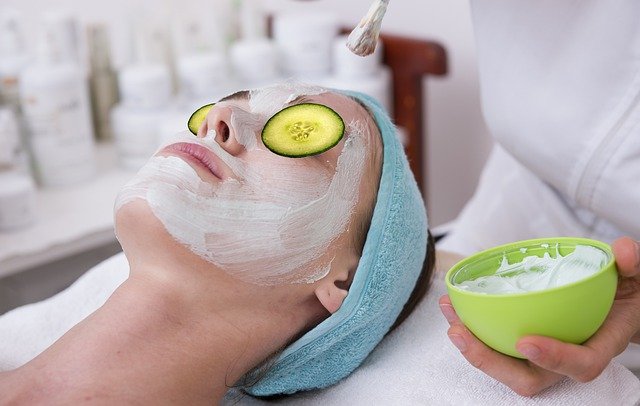Zinc is a powerhouse for your skin, influencing repair and enhancing beauty. It renews skin cells and aids in both wound healing and acne prevention by regulating oil production and calming inflammation. This mineral acts as a cofactor for enzymes necessary for collagen and keratin production, maintaining your skin's firmness and elasticity. Zinc's antioxidant properties protect your skin from environmental stressors like UV rays, while its anti-inflammatory effects guard against redness and irritation. Including zinc-rich foods like meat, legumes, and seafood in your diet can greatly boost skin health. To uncover more benefits, you might explore zinc's multifaceted roles.
Zinc and Skin Cell Production
Zinc plays an essential role in skin cell production, a process that's important for maintaining healthy skin. When you have adequate zinc levels, your skin can efficiently produce new cells, which replace the old, dead ones. This constant renewal keeps your skin looking fresh and vibrant. Zinc acts as a cofactor for enzymes that are critical in the production of collagen and keratin, two proteins essential for skin structure and resilience. By supporting these proteins, zinc helps your skin stay firm and elastic.
You'll find that zinc also influences the way your skin cells function. It aids in regulating cell growth and division, ensuring that your skin maintains its integrity. Without sufficient zinc, you might notice your skin feeling dull or even developing issues like dryness or irritation. Incorporating zinc into your diet or skincare routine can make a significant difference.
Moreover, zinc has antioxidant properties that protect your skin from environmental stressors, like UV rays and pollution. These stressors can damage skin cells, but zinc helps neutralize their effects, preserving your skin's youthful appearance. So, ensuring you have enough zinc is essential for supporting and maintaining optimal skin cell production.
Healing Properties of Zinc
Beyond its role in skin cell production, you'll find zinc also plays a significant part in the healing process. When your skin suffers from cuts, burns, or scratches, zinc steps in as a crucial player. It accelerates wound healing by boosting your immune response, reducing inflammation, and facilitating tissue repair. This mineral works to protect you against bacterial infections that can complicate recovery. Your body uses zinc to maintain skin integrity, ensuring that the skin acts as a formidable barrier against external threats.
Incorporating zinc into your diet or skincare routine isn't just beneficial—it's imperative. Foods rich in zinc, like meat, shellfish, legumes, and seeds, support your body's natural repair mechanisms. Topical creams containing zinc oxide can soothe and protect damaged skin, offering a dual approach to healing. If you're dealing with acne, zinc helps regulate oil production and reduces inflammation, making breakouts less severe and promoting quicker recovery.
Consider zinc a natural ally when it comes to maintaining healthy skin. By ensuring adequate zinc levels, you enhance your skin's ability to heal itself efficiently, making it an indispensable part of your skincare and health regimen.
Zinc's Role in Collagen Synthesis

How does zinc contribute to collagen synthesis, you might wonder? Well, zinc plays an important role in the production and stabilization of collagen, the protein that gives your skin its strength and elasticity. By acting as a cofactor for collagen-producing enzymes, zinc guarantees that collagen fibers are properly formed and maintained. Here's how zinc supports collagen synthesis:
- Enzyme Activation: Zinc activates enzymes like collagenase, which are essential for cutting and rearranging collagen fibers, allowing your skin to heal and regenerate efficiently.
- Protein Synthesis: It aids in the synthesis of proteins by facilitating RNA and DNA replication, which are critical processes for producing the amino acids necessary for collagen building.
- Antioxidant Support: Zinc provides antioxidant support, protecting collagen from damage caused by free radicals. This helps maintain its structural integrity over time.
- Cell Growth and Division: Zinc is important for cell proliferation, which is key for tissue growth and repair, guaranteeing new collagen is formed as needed.
Anti-Inflammatory Benefits of Zinc
Although you might primarily associate zinc with immune support, it also plays a significant role in reducing inflammation. When your skin experiences irritation or injury, inflammation is a natural response. However, chronic inflammation can lead to prolonged discomfort and slower healing. Zinc steps in as a powerful anti-inflammatory agent, helping to soothe your skin and speed up recovery.
By inhibiting the production of inflammatory cytokines, zinc can reduce redness and swelling, offering relief for conditions like eczema and psoriasis. It's an essential mineral that supports the body's ability to repair damaged skin cells. When applied topically or consumed through your diet, zinc provides a calming effect on your skin, promoting a healthier, more balanced appearance.
Additionally, zinc assists in regulating the activity of enzymes and proteins that play a role in skin inflammation. This regulatory function guarantees that your skin's inflammatory response doesn't go overboard, maintaining balance. You can enhance your skin's resilience by confirming you get enough zinc, either through supplements or zinc-rich foods like nuts, seeds, and whole grains. Embrace zinc as a key component in maintaining skin health and reducing inflammation naturally.
Zinc and Acne Prevention

When it comes to tackling acne, zinc stands out as an effective ally in your skincare arsenal. It helps regulate oil production, reducing one of the main contributors to acne breakouts. By balancing sebum levels, zinc helps keep your skin clear and less prone to those pesky pimples. Here's how zinc can make a difference in your fight against acne:
- Reduces Inflammation: Zinc has anti-inflammatory properties that soothe irritated skin, helping to calm redness and swelling caused by acne.
- Fights Bacteria: Zinc can inhibit the growth of acne-causing bacteria, providing a natural way to keep your skin clean and clear.
- Regulates Oil Production: By controlling the activity of your sebaceous glands, zinc helps reduce excess oil, which is a significant factor in acne development.
- Aids in Healing: Zinc supports skin cell regeneration, speeding up the healing process of acne lesions and minimizing scarring.
Adding zinc to your skincare routine, whether through diet or topical treatments, can lead to noticeable improvements. Don't forget, a balanced approach works best, so combine zinc with other skincare strategies for ideal results. Embrace zinc's benefits, and you're likely to see a clearer, healthier complexion.
Role in Antioxidant Defense
Zinc's role in your body's antioxidant defense system is crucial for maintaining healthy skin and overall well-being. This mighty mineral works by helping your body produce and activate antioxidant enzymes like superoxide dismutase (SOD). These enzymes neutralize free radicals, those pesky molecules that can cause oxidative stress, contributing to skin aging and damage. By supporting antioxidant activity, zinc helps protect your skin cells from harm, keeping your skin looking youthful and vibrant.
Incorporating enough zinc into your diet can bolster this defense system. When you don't get enough zinc, your antioxidant defenses weaken, making your skin more susceptible to damage from environmental factors like pollution and UV rays. Zinc-rich foods, such as nuts, seeds, and whole grains, can help you maintain ideal levels of this essential mineral.
Furthermore, zinc plays a role in DNA synthesis and cell division, processes critical for repairing and regenerating skin cells. By aiding these processes, zinc helps your skin recover more effectively from daily wear and tear. So, keeping your zinc levels in check isn't just about protecting your skin—it's also about ensuring that your skin can repair itself efficiently, promoting a healthy and radiant appearance.
Enhancing Skin Barrier Function

Beyond its role in antioxidant defense, zinc plays a significant part in enhancing your skin's barrier function. This mineral is essential for maintaining your skin's integrity and resilience. Zinc helps regulate cell proliferation and differentiation, which keeps your skin's outer layer robust and healthy. Here's how zinc contributes to a stronger skin barrier:
- Cell Renewal: Zinc accelerates the healing process by promoting cell turnover. This guarantees your skin sheds dead cells efficiently, allowing fresh, healthy cells to surface.
- Protein Synthesis: Zinc is critical for synthesizing proteins like keratin and collagen, which are necessary for your skin's structure and elasticity, providing a fortified barrier against external irritants.
- Lipid Regulation: Your skin's barrier relies on lipids to keep it hydrated and shield it from harmful elements. Zinc aids in lipid metabolism, maintaining moisture and preventing dryness.
- Reducing Inflammation: By modulating inflammatory responses, zinc minimizes redness and irritation, helping maintain an even skin tone and texture.
Incorporating zinc into your skincare routine can enhance your skin's barrier function, keeping it resilient against environmental stressors. With a fortified barrier, you're better equipped to maintain healthy, beautiful skin.
Dietary Sources of Zinc
To guarantee you're getting enough zinc for ideal skin health, focus on incorporating a variety of zinc-rich foods into your diet. Start by adding lean meats like beef and pork, as they're excellent sources of zinc. Poultry, such as chicken and turkey, also offers a significant zinc boost. If you prefer seafood, oysters are particularly high in zinc, but crab and lobster are good choices too.
Don't overlook plant-based options. Legumes, including chickpeas, lentils, and beans, provide a moderate amount of zinc, especially when consumed in larger portions. Seeds like pumpkin, sesame, and sunflower are also beneficial and can easily be sprinkled over salads or oatmeal. Nuts, particularly cashews and almonds, offer another plant-based zinc source that's easy to snack on.
Fortified cereals and whole grains contribute to your zinc intake as well, though whole grains may contain phytates that can slightly inhibit absorption. To enhance your zinc uptake, consider pairing these foods with protein-rich items or fermenting grains and legumes. By diversifying your dietary sources, you'll efficiently meet your zinc needs, supporting your skin's repair and maintaining its natural beauty.
Zinc Supplements for Skin Health

For those who find it challenging to obtain sufficient zinc solely through diet, zinc supplements can be a convenient option to support skin health. You might be wondering how these supplements can benefit you. Well, zinc plays an essential role in maintaining your skin's integrity and promoting wound healing. If you're dealing with acne or other skin conditions, zinc supplements might help reduce inflammation and bacteria, providing clearer skin.
Before diving into zinc supplements, consider these key points:
- Types of Supplements: Zinc comes in various forms, such as zinc gluconate, zinc citrate, and zinc picolinate. Each type has different absorption rates, so it's worth researching which might work best for you.
- Dosage Recommendations: The recommended daily allowance (RDA) for zinc varies by age and gender. For adults, it's typically between 8-11 mg. Consult with a healthcare professional to find the right dosage for your needs.
- Potential Side Effects: Excessive zinc intake can lead to nausea, headaches, and other issues. Make certain you adhere to recommended doses.
- Interactions with Other Supplements: Zinc can interact with other minerals like copper, affecting absorption. Maintain balanced intake to prevent deficiencies.
Frequently Asked Questions
How Does Zinc Deficiency Affect Hair Growth?
If you don't get enough zinc, your hair can become thin and brittle. Zinc deficiency disrupts the hair growth cycle, leading to hair loss and slow regrowth. Make certain your diet includes zinc-rich foods to maintain healthy hair.
Can Zinc Help With Skin Hydration?
Zinc can indeed help with skin hydration, much like a trusty steed in your skincare regimen. It regulates oil production, reducing dryness. By supporting collagen formation, it keeps your skin supple and well-hydrated. Don't skip it!
Does Zinc Impact Skin Pigmentation or Tone?
You might wonder if zinc affects skin pigmentation or tone. It can play a role by influencing melanin production and reducing inflammation, which sometimes helps even out your skin tone and potentially lightening hyperpigmented areas.
Are There Any Side Effects of Topical Zinc on Skin?
You might be surprised to learn that while topical zinc can soothe your skin, it may cause irritation or dryness. Coincidentally, using a moisturizer helps prevent these side effects, so don't skip that step in your routine.
What Is the Recommended Daily Zinc Intake for Different Age Groups?
You're wondering about zinc intake. For infants, it's 2-3 mg. Children need 3-8 mg. Teens require 8-11 mg. Adults should have 8-11 mg, too. Pregnant and breastfeeding women need more, around 11-12 mg daily.
At a Glance
You've discovered the fascinating ways zinc coincidentally intertwines with skin health. From boosting cell production to enhancing your skin's barrier, zinc's influence is undeniable. It plays a vital role in collagen synthesis, acts as a powerful anti-inflammatory agent, and even helps prevent acne. Zinc's antioxidant properties and dietary sources are just as important. So, whether through food or supplements, incorporating zinc into your routine might just be the secret to healthier, more radiant skin.






